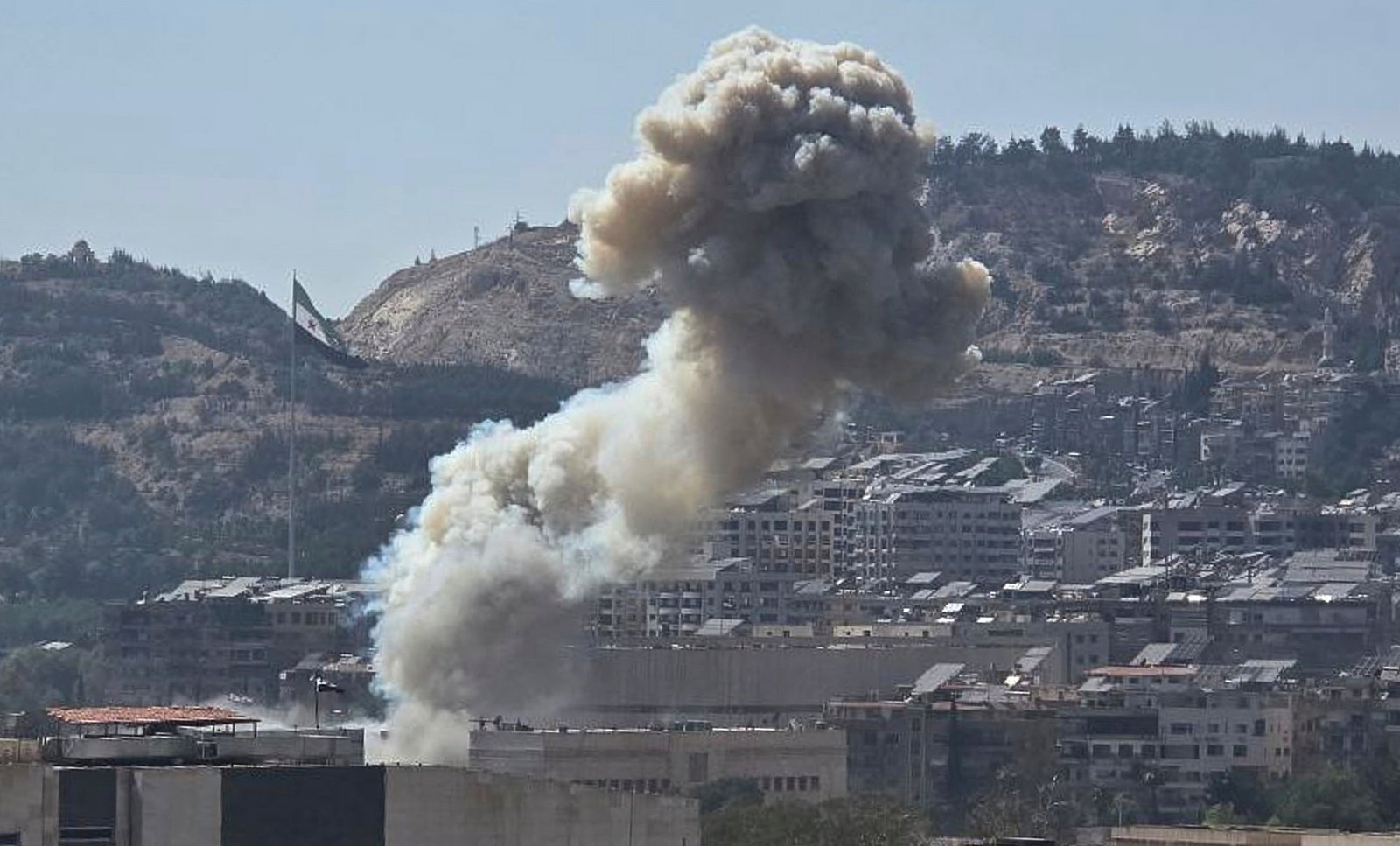In a significant address on a Wednesday afternoon, Israeli Prime Minister Benjamin Netanyahu reached out through a video message to the Druze minority in Israel. He urged them not to venture into southwestern Syria to assist the Syrian Druze militia amid ongoing conflicts against Bedouin groups and government forces in Suwayda.
At the same time, Israeli military operations were underway, as airstrikes targeted Damascus, hitting the Ministry of Defence and resulting in at least three fatalities.
Netanyahu asserted that the Israeli military was being utilized to protect the Druze community. “My brothers, the Druze citizens of Israel, the situation in Suweida is critical,” said Netanyahu, who previously championed the controversial 2018 nation-state law that has been perceived as marginalizing minorities such as the Druze. “We are committed to safeguarding our Druze brethren and to combating the regime’s gangs,” he claimed, referring to the Syrian government.
Understanding Israel’s Druze Community
The Druze and local Bedouin communities in Suwayda have a history of sectarian tensions. Additionally, the newly-established Syrian government, which came into power after the overthrow of long-time dictator Bashar al-Assad in December, has struggled to assert authority in the region, partly due to Israel’s continual warnings regarding the Syrian military’s presence near its borders.
There are approximately 700,000 Druze residing in Syria, with another 150,000 in Israel. Historically, many in Israel viewed their ties with the Jewish population as a “blood covenant” dating back to Israel’s 1948 founding, which was marked by the displacement of numerous Palestinians during the Nakba. While some Druze now feel marginalized as “second-class” citizens post-2018 law, many still demonstrate loyalty to Israel, often serving in its military.
“Israeli Druze identify as Druze, as Israelis, and as Arabs,” stated Rami Zeedan, associate professor at the University of Kansas and editor-in-chief of the Druze Studies Journal. “Their identification with Israel stems from a shared sense of being persecuted minorities, leading them to believe they have more to gain from the Israeli state compared to any alternative future.”
Zeidan elaborated on the Israeli Druze’s push for government protection for their Syrian counterparts, indicating that this demand is, in part, a rationale for Israel’s military interventions in Syria, despite the traditional anti-Israel sentiment of the Druze community.
Opportunistic Motivations
However, it’s essential to recognize that Israel has long targeted Syria, even prior to the recent unrest involving the Druze of Suwayda. Following Assad’s downfall, Israel has conducted hundreds of airstrikes in Syria, occupying around 400 square kilometers (about 155 square miles), excluding the Golan Heights, which it has controlled since 1967.
Israeli analysts argue that the recent assaults might not merely reflect concern for the Druze’s well-being, but serve the political ambitions of Netanyahu, who is currently under scrutiny due to corruption charges.
“It’s pure opportunism,” noted Alon Pinkas, a former Israeli ambassador to New York, in a discussion with Al Jazeera. “Pretending to aid our Druze friends is much like how we’ve historically overlooked other allies, such as the Kurds.”
Pinkas detailed several factors driving Israel’s current strikes on Syria, including Netanyahu’s attempts to solidify his image as a wartime leader and deflect attention from his legal issues. He emphasized the instability of a unified Syrian government, suggesting that Israel benefits from a fragmented Syria, allowing them more leeway in the region.
“Netanyahu is adamant that Israel will only accept a demilitarized zone in southern Syria, including Suwayda, which creates a buffer for Israel and further justifies military actions in Syria,” he commented.
Impact of Continuous Conflict
Israel’s strikes on Syria have contributed to the ongoing sense of crisis within Israeli society, which has remained a significant element for the government amid numerous scandals since the October 7, 2023, Hamas-led attack and the subsequent conflict in Gaza.
Israel has extended its military actions to Lebanon, Iran, Yemen, and Syria. “The public seems apathetic towards war; it’s as if they’ve grown indifferent,” explained Israeli political analyst Ori Goldberg. “While war once energized society, now it feels fleeting, with many having forgotten even the recent conflict with Iran.”
Goldberg noted that the usual precautions preceding military engagement have been overshadowed by a cycle of new threats calling for immediate escalation. “It’s dangerous. Israelis seem disengaged from the plight of the Druze; to them, it’s just another front in a series of conflicts, leading to an almost casual ‘let’s proceed’ mentality,” he observed. “War has left us feeling hollow.”

